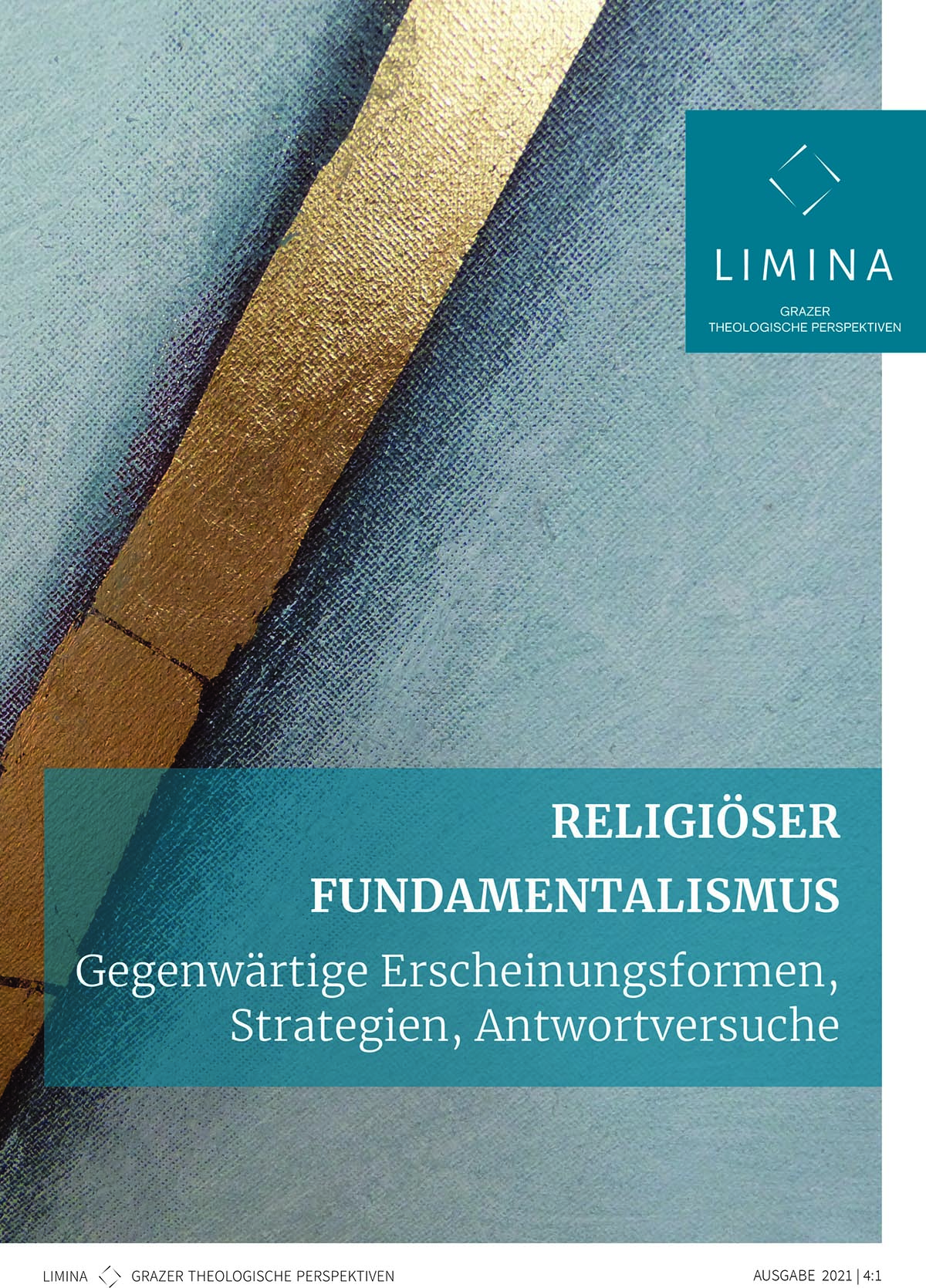Professional – missionary – borderline fundamentalist? New religious movements and the religiosity of young adults on the example of the HOME Church Salzburg
Main Article Content
Abstract
Religiosity among adolescents and young adults is a highly complex phenomenon. While increased openness towards religious pluralism can be observed among many young Christians, there is also a small group emerging that follows a trend towards stricter forms and styles of religious expression, which incorporate traditionalist elements and may be perceived as fundamentalist from an outside perspective. It is the task of religious pedagogy to recognise the diverse forms of religious expression among adolescents and to develop relevant didactic concepts for religious education. In light of this, the article examines the different forms of religious expression among young adults participating in ‘new’ religious movements that grow their online presence and are becoming more active on social media in the era of ‘social distancing’ due to COVID-19.
This research into Catholic (youth) movements is carried out on the example of the HOME Church Salzburg, which forms part of the Loretto Community. Their well-designed multi-channel presence on social media (Facebook, Instagram, YouTube, etc.) allows them to successfully reach a wide audience. The basis of analysis is their Sunday Morning programme, which provides insight into the particular teachings, beliefs, views, attitudes and forms of expression of this religious community. The data is collected from twelve Sunday Morning celebrations streamed via YouTube between mid-March and Pentecost 2020. The extracted content and forms of expression are then categorised and classified according to specifically developed parameters of fundamentalism based on the Religious Fundamentalism Scale (Altemeyer/Hunsberger 2005).
The aim is to offer a nuanced religious didactic view on new religious (youth) movements in an attempt to counter polarisation by identifying challenges and finding opportunities for engagement for religious education.
Article Details
The author(s) retain copyright without any restriction.
LIMINA provides immediately upon publication open access to its content. The content of this journal is licensed under the Creative Commons Attribution 4.0 International Licence. By submitting a contribution, the author(s) agree(s) to the terms of use of the CC BY licence.

